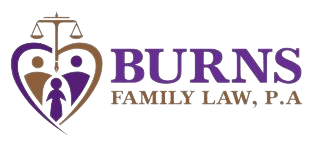The Complete Guide to Affordable Family Law Options for Low-Income Families
More than 90 percent of low-income families encounter a justice gap when seeking affordable family law representation, with cost often cited as the primary barrier. This guide maps the complete spectrum of options—from no-cost legal aid and pro bono services to sliding scale attorneys, unbundled representation, self-help courts, and community clinics—to empower families with actionable strategies for securing affordable family law assistance. You will learn how legal aid qualifies applicants, where to find volunteer attorneys, which low-cost fee structures exist, how to leverage court self-help resources, and how each option addresses specific issues such as divorce, custody, support, and protection orders.
Affordable legal help is within your reach. At Burns Family Law, P.A., Attorney Nicole Burns has been serving Osceola County families for over 23 years—offering compassionate, results-driven representation tailored to your needs and budget. Whether you’re facing divorce, custody disputes, or support matters, we’ll guide you through every step with clarity and care. Contact us today to schedule a confidential consultation and explore your options for affordable family law representation.
What Is Legal Aid and How Can Low-Income Families Qualify?
Legal aid is a nonprofit or government-funded service that provides free civil legal assistance to low-income families, reducing financial barriers by assessing eligibility through income thresholds and case types. This support ensures qualified households obtain affordable family law representation without incurring prohibitive attorney fees.
Legal aid programs operate by matching applicants’ documented incomes and household sizes against state or federal poverty guidelines, then assigning a staff attorney or volunteer to manage cases. Qualification typically requires proof of income, residency, and the nature of the legal issue.
Legal Aid Eligibility and Services
Legal aid organizations provide free civil legal assistance to low-income families, with eligibility often determined by income thresholds and the nature of the legal issue. These programs offer comprehensive family law support, including divorce representation, child custody advocacy, and domestic violence protection orders, ensuring access to legal processes for those who qualify.
This source supports the information about the services provided by legal aid and how low-income families can qualify.
What Services Does Legal Aid Provide for Family Law Cases?
These services equip families to resolve legal disputes effectively, paving the way to explore how to apply for legal aid next.
How Do Low-Income Families Apply for Legal Aid?
To secure legal aid assistance, follow these steps:
- Gather proof of income, such as pay stubs, tax returns, or benefits statements.
- Identify the local legal aid office via state or county bar association directories.
- Complete and submit the eligibility application form in person, by mail, or online.
- Attend an intake interview to review your case details and documentation.
- Receive a determination letter outlining the services approved and assigned attorney.
Each step clarifies requirements and timelines, helping applicants move seamlessly into representation and leading to an understanding of specific case coverage.
Which Family Law Issues Are Covered by Legal Aid?
- Divorce and legal separation
- Child custody and visitation disputes
- Domestic violence protection orders
- Child support establishment and modification
- Paternity and guardianship matters
These covered issues illustrate legal aid’s broad reach and set the stage for finding local provider contact points.
Where Can You Find Local Legal Aid Organizations?
- Visiting state bar association referral directories
- Searching national legal aid directories by zip code
- Contacting local family court self-help centers
- Calling nonprofit community action agencies
These channels connect families with the nearest legal aid offices, preparing for alternative assistance through volunteer attorneys.
How Do Pro Bono Legal Services Support Low-Income Families in Family Law?
Pro bono legal services combine volunteer attorney expertise with nonprofit coordination to deliver free representation in qualifying family law matters, enhancing access to affordable family law support and ensuring justice for underserved populations.
Volunteer lawyers partner with legal clinics or bar associations to accept cases without charge, often after screening for income eligibility and case complexity. This collaboration broadens the network of pro bono family law attorneys available to low-income clients.
Pro Bono Legal Services and Eligibility
Pro bono legal services offer free representation in family law matters, often coordinated by bar associations and legal aid organizations. Eligibility for pro bono assistance typically covers domestic violence protective order proceedings, child custody disputes, and divorce cases with significant financial hardship, broadening access to affordable family law support.
This citation supports the information about pro bono services and the types of cases that are eligible for assistance.
What Is Pro Bono and Who Offers These Services?
- Local and state bar association pro bono programs
- Legal aid organizations leveraging volunteer attorney rosters
- Law school clinics offering supervised student representation
- Specialty nonprofits focused on domestic violence or child welfare
These providers channel attorney resources into free family law support and illustrate the next step: finding available pro bono counsel.
How to Find Pro Bono Family Law Attorneys Near You?
- Visit your state bar association’s pro bono program webpage.
- Contact local legal aid offices for pro bono referrals.
- Check law school clinic listings for family law clinics.
- Search nonprofit directories specializing in domestic violence legal help.
Following these practical tips connects families with volunteer counsel and transitions into eligibility criteria for specific cases.
What Family Law Cases Are Eligible for Pro Bono Assistance?
- Domestic violence protective order proceedings
- Child custody and visitation disputes involving safety concerns
- Divorce cases with significant financial hardship
- Child support enforcement for families below poverty lines
Limited slots may require prioritization of urgent matters, leading readers to real-world success stories next.
Are There Success Stories of Pro Bono Help in Family Law?
- A survivor obtained a restraining order and child custody agreement through volunteer counsel within two weeks.
- A single parent secured a favorable child support modification with no legal fees via a bar association clinic.
- A couple resolved an uncontested divorce after attending a pro bono mediation session facilitated by volunteer attorneys.
These narratives build trust and segue into affordable paid options when pro bono slots are unavailable.
What Affordable Attorney Options Exist for Family Law Cases?
Sliding scale fees, limited scope representation, modest means programs, and flat-fee structures offer paid but budget-friendly family law attorney solutions, ensuring low-income clients access professional counsel at reduced rates.
By adjusting fee schedules to clients’ incomes or offering unbundled services, attorneys deliver affordable family law counsel and open paths to cost-effective legal strategies.
How Do Sliding Scale Legal Fees Work for Family Law Attorneys?
Sliding scale fees adjust hourly rates based on income brackets:
- Income ≤ 125 % of poverty level → Free or minimal fee
- Income 126–200 % of poverty level → 50 % reduced rate
- Income 201–300 % of poverty level → 25 % reduced rate
This flexible model aligns attorney fees with client financial capacity, preparing for unbundled service options.
What Is Limited Scope Representation and How Does It Help?
Limited scope representation (unbundled services) lets clients pay for select tasks:
- Document drafting only
- Court appearance coverages
- Legal advice sessions
Clients benefit from professional guidance on critical components while managing other tasks independently, a cost-saving alternative to full representation.
What Are Modest Means Programs and How Can They Help?
Modest means programs, often sponsored by bar associations, offer:
- Referrals to attorneys with reduced rates for moderate-income households
- Payment plans and fee caps to limit costs
- Sliding fees combined with unbundled options
These programs bridge the gap between legal aid and standard billing practices, enhancing affordability.
Are Flat Fee Family Law Services Available for Low-Income Clients?
Some attorneys provide flat-fee packages covering:
Flat fees offer predictability and reduce financial uncertainty, leading into self-help avenues when paid options exceed budgets.
How Can Low-Income Families Use Self-Help and Court Resources Effectively?
Court self-help centers, online guides, form libraries, and mediation services empower self-representation, allowing families to navigate affordable family law processes with minimal or no attorney involvement.
By leveraging instructive resources and structured procedures, low-income individuals reduce legal expenses while maintaining control over case progress.
What Family Court Self-Help Centers Offer for Affordable Legal Support?
Self-help centers in family courts typically provide:
- Free access to divorce, custody, and support forms
- Staff guidance on form completion and filing processes
- Workshops on preparing for hearings
- Referral lists for pro bono and low-cost attorneys
These centers demystify court procedures, leading seamlessly to a focus on DIY forms.
How to Complete DIY Divorce and Child Custody Forms?
When self-filing, follow these steps:
- Obtain case-specific forms from court clerks or online portals.
- Review detailed instructions provided with each form.
- Use fill-in-the-blank guides to ensure accuracy.
- Submit forms and pay filing fees (often waived for low-income filers).
Accurate completion streamlines court processing and precedes reliable online guidance sources.
Which Online Legal Information Websites and Hotlines Are Reliable?
Trusted self-help resources include:
- Nonprofit legal information portals with state-specific guides
- Family law hotline numbers staffed by volunteer attorneys
- Court-maintained websites offering downloadable forms
- Accredited legal aid organization FAQs
These tools supplement self-help center services and introduce cost-effective mediation alternatives.
How Does Mediation Work as an Affordable Alternative in Family Law?
Mediation engages a neutral facilitator to guide dispute resolution, offering:
- Joint sessions to negotiate parenting plans or asset division
- Reduced hourly rates compared to litigation
- Confidential, non-adversarial environment
Mediation agreements often submit directly to courts, providing a lower-cost method for resolving family law matters.
How Do Affordable Family Law Options Address Specific Legal Issues?
Affordable options tailor services to the unique needs of divorce, custody, support, protection, and guardianship cases, ensuring each family law issue receives appropriate, budget-conscious support.
Understanding how each option applies to distinct matters helps families choose the most effective resource.
What Are Affordable Divorce and Legal Separation Options?
Options for low-cost divorce include:
- Legal aid or pro bono representation for uncontested cases
- Flat fee packages for paperwork and filings
- Self-help form completion with court fee waivers
- Sliding scale mediation to negotiate settlements
Combining these resources yields a cost-effective path to marital dissolution.
How Can Low-Income Parents Access Child Custody and Visitation Help?
Parents may pursue:
- Custody representation through legal aid or pro bono clinics
- Court-provided form assistance for pro se petitioners
- Limited scope counsel for mediation sessions
- Parenting plan workshops and self-help guides
These approaches reduce expenses while securing parental rights.
What Resources Exist for Child Support Enforcement and Modification?
Enforcement and modification avenues include:
These channels streamline support actions, leading into protective services for survivors.
How Can Domestic Violence Survivors Obtain Legal Protection Affordably?
Survivors gain protection by:
- Accessing emergency restraining order services at self-help centers
- Receiving free counsel through legal aid or pro bono programs
- Attending survivor-focused legal clinics for safety planning
- Utilizing court fee waivers and expedited hearings
This combination ensures urgent protection without financial burden.
What Affordable Legal Services Are Available for Paternity and Guardianship?
Low-cost paternity and guardianship support includes:
- Self-help forms to establish paternity or guardianship status
- Limited scope representation for hearing preparation
- Legal aid assistance for DNA testing orders
- Flat fee packages for guardianship petitions
These solutions address less common yet critical family law needs.
What Are the Eligibility Criteria and Income Guidelines for Affordable Family Law Services?
Eligibility for affordable family law services hinges on quantifiable income thresholds, case type prioritization, residency requirements, and documentation standards to ensure fair resource allocation.
Understanding these criteria aids applicants in selecting the right program and preparing necessary evidence.
How Is Income Eligibility Determined for Legal Aid and Pro Bono Programs?
Income verification commonly involves:
- Comparing gross monthly income against 125 %–200 % of federal poverty level
- Counting household members for threshold calculations
- Submitting pay stubs, benefit statements, or tax returns
- Factoring in special circumstances (e.g., disability, recent job loss)
These metrics align clients with appropriate free or reduced-fee services.
What Other Factors Affect Qualification for Affordable Legal Help?
Additional qualification elements include:
- Case type urgency (domestic violence prioritized)
- Residency or jurisdiction requirements (state or county boundaries)
- Asset evaluations (excluding primary residence)
- Recurring service limitations (case caps per year)
Recognizing these factors refines service selection and application success.
How to Prepare Documentation for Eligibility Applications?
To streamline approval:
- Collect recent pay stubs or benefit award letters.
- Compile proof of household size (birth certificates, lease agreements).
- Draft a one-page statement outlining case background and hardship.
- Organize documents in labeled folders or digital files.
Thorough preparation accelerates intake and moves cases into representation.
Where and How Can Low-Income Families Find Affordable Family Law Help?
Directories, bar association referrals, community clinics, and best practices for contacting providers guide families to the most suitable affordable family law options in their area.
A structured search strategy ensures efficient connection to legal resources.
How to Use Legal Aid Directories and Referral Services?
Locate providers by:
- Entering zip code on national legal aid directory websites
- Filtering by case type and service area within bar association lists
- Phone-based referral hotlines offering real-time program matches
Structured directory use yields targeted contacts and reduces search time.
What Role Do Bar Associations Play in Affordable Family Law Assistance?
Bar associations facilitate:
- Lawyer referral services with vetted low-fee attorneys
- Modest means programs connecting moderate-income clients to reduced-rate counsel
- Pro bono event coordination and volunteer recruitment
- Continuing education for attorneys in family law specialties
These functions bridge families to affordable professional services.
How to Access Community Legal Clinics and Free Family Law Workshops?
Community clinics and workshops offer:
- On-site legal advice days at libraries or community centers
- Group seminars on completing court forms and mediation basics
- Scheduled workshops on safety planning for survivors
- Mobile clinics traveling to underserved neighborhoods
Attending events builds legal knowledge and referral networks, leading to best engagement practices.
What Are the Best Practices for Contacting and Working with Affordable Legal Providers?
Maximize consultations by:
- Preparing a concise case summary and list of questions.
- Organizing all relevant documents in advance.
- Arriving early and respecting time limits for appointments.
- Clarifying fee structures and next steps before engagement.
Adhering to these practices fosters a productive attorney-client relationship and ensures the most from affordable services.
Low-income families face significant challenges in accessing family law representation, but a comprehensive mix of legal aid, pro bono assistance, affordable attorney options, self-help resources, and targeted eligibility strategies closes the justice gap. By understanding how each option works, qualifying effectively, and engaging providers with best practices, families can secure the legal support necessary for divorce, custody, support, and protection matters without bearing overwhelming costs. Implement these approaches today to navigate affordable family law solutions with confidence and clarity.




